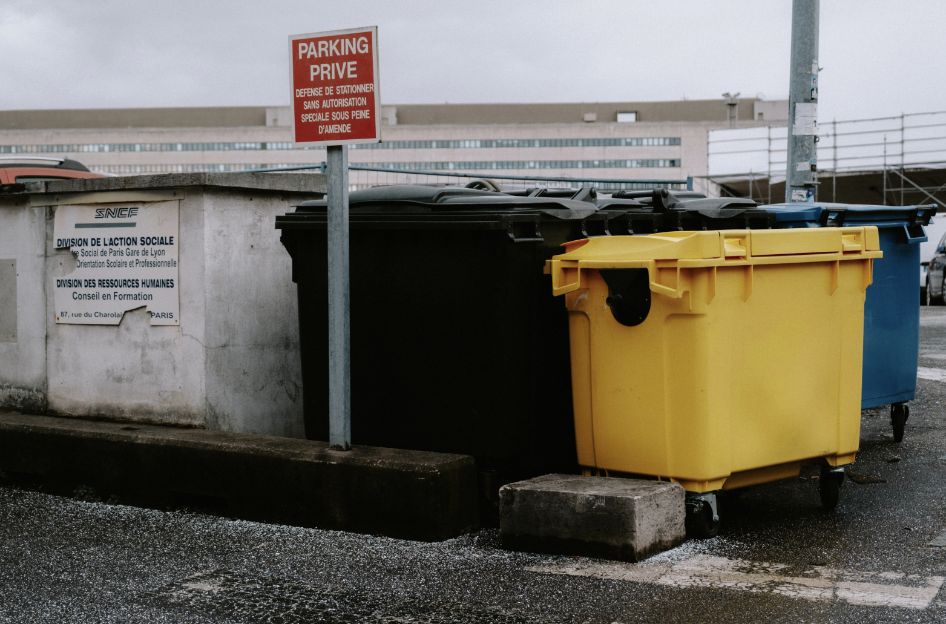If you are new to skip bin hire, you might likely have some questions about the practical aspects of managing them. We’ve been in the business for so long that we know the issues our customers face. Here are our best tips on maximising your efforts and getting your money’s worth by correctly filling the bin.

Types of skip bins
The first thing to remember is that skips come in various sizes and types. So, depending on which size and type you order, this article will offer a few tips to remember before you book.
In general, most domestic-use skip bins are of reasonable size. The huge, 30 cubic metre skips you often see on building sites won’t concern you.
Domestic skip bins come in various sizes; some are meant for specific types of waste. For example, skip bins are meant exclusively for green waste and skip bins are meant only for soil. Others are used for general and mixed waste.
They can be priced differently, so that is something you may want to bear in mind.
Most households will book a skip bin between 2 and 12 cubic metres. 12 is very large, though, so this is more likely useful for building and renovation jobs at home.
Safety when using skip bins
Skip bins over 2 square metres have a hatch opening at the back. This opens downward like a flap, allowing users to fill the skip with heavier items on a wheelbarrow.
This feature saves people from trying to lift heavy waste over their heads to deposit it into the skip bin.
Always take care of your back when pushing wheelbarrows with heavy waste. Wear closed-toe shoes and a hat if you’re going to be outdoors for a lengthy period.
If you are using the skip at work, adhering to health and safety regulations is essential.
How to load a skip bin properly
When your skip bin truck arrives, you will preferably be at home. This is to ensure the skip bin is placed in precisely the spot you have designated for it.
But don’t worry if you can’t be at home. When you book a skip bin, you can state where you want it placed.

The main thing to remember is that if you want to load your skip bin like a pro, you will need to make the most of the available space.
Packing a skip bin properly is the main issue you need to bear in mind. This means never just throwing items in randomly.
Always begin with flat objects such as doors, window frames or broken-down boxes. If you have old furniture and fittings, take them apart.
Bulky items like this take up too much space. Yes, it might feel like extra work, but you will fit more in this way.
You can add more once you have all the flat items on the skip bin base. When only a little space is left, you can force lighter rubbish into gaps, but be careful. Smaller waste materials can push you over the weight limit.
1. Start loading your skip bin with the heavier and flat items first
It’s never a good idea to hurl items into a skip. This results in a badly loaded skip and wasted space. Flat items like doors are also weighty, and it’s best to get them in immediately. Things like planks of wood, tabletops or large boards will go in without leaving too much air space.
Once you have put all the flat items into the skip, it’s time for the big, heavy things. Heavier items are generally things like bricks, rubble and timber. If you deal with these bulky items first, it’s much easier to pack the lighter rubbish into empty spaces afterwards.
Items like old televisions, chairs, and fridges will need more than one person to lift them, so ensure you have help. It’s easy to hurt yourself if you attempt to lift heavy items alone.
Once you’ve put all the heavy and bulky items into the skip, you can fill your skip bin with green waste, bulky loads, and smaller items. Pack these into the spaces that are left.
2. Why you shouldn’t fill above-the-line
Never be tempted to fill bins above the line. Don’t be tempted to balance bulky items on top, as this can be dangerous. Not only will you incur more charges, but you will endanger passers-by. Precariously balanced rubbish tends to shift and can fall and injure people.
Overfilled skip bins may not be collected until the extra has been removed. A completely full bin isn’t overflowing but has just the right amount.
3. Place your items close to where the skip will be positioned
This isn’t always possible, but if you can place items near the area where your skip will be positioned, it’s a great way to streamline the loading of your bin. This process saves you from walking in and out of your property collecting things.
Once you have ordered your skip bin, bring out your waste and rubbish and neatly arrange it. If you gather together as much as you can, you can plan more effectively as you can see at a glance what needs to go into the skip bin. Pile the rubbish as neatly as possible. If possible, do this before ordering your skip bin. It will allow you to estimate which size skip bin you need.
Watch out for bad weather, though! Loading soggy refuse into a skip bin isn’t pleasant.
4. Distribute the weight of your waste evenly inside the skip bin
If the skip bin is heavier on one side than another, this can cause issues in transit. Evenly balance the weightier things so that it won’t tip to one side when the skip is collected.
5. Don’t let your rubbish get wet
If you leave your rubbish outside a day or two before the arrival of your skip bin, you risk it getting wet. Moisture can add a lot of weight to waste, which could take you over the weight limit of your skip bin.
Ask questions during the booking.
When you book a skip bin, you can ask for clarification on waste types, weight capacity and anything else that concerns you.
Always ask in advance if you have any concerns about what you plan to put in your skip bin or about loading your skip bin. You may have to ask permission to add carpet, white goods and other waste that is hard to recycle or dispose of.
Some things must never be put in a skip bin; they include asbestos, batteries, oil and paint. Again, if in doubt, always contact your skip bin hire company and ask for advice.
Skip bin hire is convenient and affordable.
Convenience and affordability are the keys when you are already busy. Local council bins aren’t always enough to contain extra waste, and dump runs take time and money, too.
